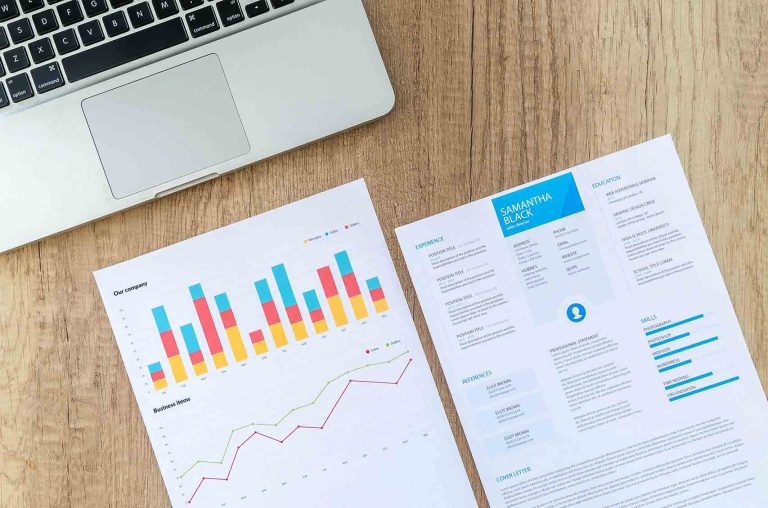Important Tips for Website Maintenance

Currently, people build websites for different reasons. It could be to sell things online, share information, for marketing or increase the online presence of their brand or business. Whatever the reason is for building a website it is important to maintain it to make use of it optimally.
Website maintenance requires skills because you have to monitor, update and manage it so that the website will be fully functional, secure, and performing at optimal.
Therefore, a website cannot do without maintenance, which means that the website owner constantly has to look for ways to maintain their website.

In this post, we will consider important tips and tricks for website maintenance they include:
Update your website
One of the most essential tips in website maintenance is regularly updating your website. If your website is built purely ok code, you may not have to concern yourself with always updating your website because you will make use of fewer plugins and themes.
However, you must keep an eye out for updates if you’re utilizing a content management system (CMS).
The updates that the developers of these CMSs, plugins, and themes do to fix bugs, improve user experience, fix errors, and make it difficult for hackers to access your website.
Therefore, watch out for updates notifications, if possible, you can set up auto-updates so that you do not forget them.
Also Read: Leveraging Social Media for Essay Research and Engagement
Check for broken links
For optimal website maintenance, you need to be on the lookout for broken links on your website. Many websites have lost traffic, e-commerce businesses that have lost their clientele and websites have gone down in their search engine rankings.
It is bad when a visitor clicks on a particular link on your website hoping that they will be taken to the page or the content they want to see only for a “404 error” to pop up.
To prevent this from happening and missing much, you should regularly check the links available ok your website and updates them if any are broken.
You can make this easier for yourself by using a Google search console, or a website crawler that can help you easily spot these broken links.
Work on your website security
Website security is a significant portion of website maintenance. The security of your website is paramount if you want to use your website for the purpose you had while building it.
Website security is nothing big; all you have to do is install a security that will make it difficult for hackers or cybercriminals to access, ensuring that the password to the website especially the admin panel is difficult for a hacker to crack.
SSL stands for Secure Socket Layer. With an SSL certificate in place, the data that is transferred between the website and visitors on the site is encrypted and difficult for hackers to access it.
When you have an SSL certificate in place, you not only keep data secure, but you can build trust. Such branded certificate on your website shows the padlock sign and HTTPS instead of HTTP which means that when a visitor visits your website, they are sure that their information is secure and they are not at risk.
If you’re considering enhancing your website’s security, it’s a good idea to explore options to Buy RapidSSL Certificate, Comodo SSL etc. This can provide an additional layer of protection and assurance for both you and your visitors.
Search engine optimization for your website
Another thing you should do for your website maintenance is to optimize it for search engines. When you optimize your website, it will be easier for it to show up on search engine results pages (SERP) when keywords for your related content are typed.
To start optimizing your website for search engines, you can search for relevant keywords relating to your brand or the kind of content that you want to share with your audience so that your website can come up when it is searched.
Adding relevant links to your website is also important. Your internal links will help with the structuring of your website whole your external links will be to other websites, which shows your content is relevant.
It is also necessary that the elements on your website like the Meta tags, Meta description, headings, structures, etc. be well optimized. The reason this is necessary is that this is often what will show up on the SERPs.
Additionally, the content you put out should be original, fresh, and relevant. Search engines look out for the best content to rank, so, you should optimize your website for search engines if you want to maintain it.
Data backup
You should not neglect to back up your data for your website maintenance.
While no one hopes to have their data corrupted, mistakenly deleted, or hacked, it is still necessary to have a backup in case that happens so that you can get your website running again. With your data backup, you will not lose your data.
The data you should back up includes your databases, website files, and other critical information. You can make use of external devices like a hard drive to do so.
Content updates
You must regularly update your content by updating existing content, either removing outdated content that makes your website look unprofessional and drives away potential customers, or adding fresh ones to your website.
Doing these will encourage engagement on your website, and ensure that your audience will not lack something engaging. So, update those pages, product descriptions, links, blog posts, articles, etc. today.
Monitoring websites
There are times when websites experience downtime, which makes it necessary for you to monitor it during maintenance. Website downtime makes it impossible for users to perform their tasks. It occasionally fails to be accessible online.
As a website owner, you should watch out for downtimes since it can result in significant income and sales losses because your customers or visitors are trying to access your website and when they cannot, they will look for alternatives.
A website may experience downtime for a variety of reasons. Sometimes it might be intentional damage, unplanned maintenance, or a mistake made by a person. A minor human error could result in a programming modification that results in a long website downtime.
Therefore, using uptime monitoring or website monitoring is one example of how you can prevent website downtime. There is a good chance that your web-hosting provider has a solution for uptime monitoring that can assist you in this.
If not, you should look for a more reliable web hosting provider because you do not want your website to experience downtime, and if it does happen, it should not be for long.
Look out for security updates
Hackers are always looking out for websites they can access. It does not matter if it is a high profile or low-profile one provided they can access it.
As a person who wants to carry out website maintenance you need to prioritize protecting it against hackers, and e-commerce businesses that deal with sensitive client data like their banking information have even greater reasons to do so.
Verifying that all of your platforms, plug-ins, and scripts are up to date is one of the most crucial website maintenance procedures you should plan on for security. Updates for these are typically released by developers to increase security or fix a vulnerability they discovered.
Spend a moment verifying that your website is still operating properly after making an update. If you use WordPress, it is possible that periodically a CMS update will interfere with a plugin you use, and if this happens, you might lose crucial functionality.
Do not let the thought of losing functionality deter you from finishing this stage, even though it may sound frightening. Doing this will prevent your website from being hacked. If there are, security updates like changing passwords that you should implement, take your time to do so.
Renew your domain name timely
Imagine waking up one morning and trying to access your website and you cannot do it after all the money, time, and resources you invested in it. In this situation, instead of finding your website, you discovered a page stating that the domain name had expired.
In addition, to make matters worse, your domain registrar loaded the page with details on how someone else can buy it, and perhaps the domain name is already available for sale.
It may seem impossible, but many people and businesses have experienced it and will continue to experience it if they do not monitor it.
The effort an individual or business has put in to increase the authority and online presence of the website could be lost if you lose control of your domain name.
This is a simple task for busy businesses and website owners to handle, but most times, they overlook renewing the payment for their domain name.
So, at the very least once a year, verify the status of your domain name renewal which you can do while carrying out website maintenance.
To make it easier for you, you can enable auto-renewal. In that case, your only real concern should be to maintain your current payment details.
Website Evaluation
An extension of your brand or business is your website. As a result, it must function exactly as you had thought it would across all platforms, including browsers and devices. It must be swift, precise, and dependable.
A common misunderstanding is that websites function uniformly across all browsers, which it does not. Therefore, you must test it on many browsers and devices like mobile devices, tablets, and laptops to ensure that it is delivered correctly everywhere.
Also Read: Why Visual Content Is the Easiest Way to Share Information Online?
Final thoughts
To fully enjoy your website and ensure that it serves the purpose you had while initially building it, it becomes important for you to maintain your website. The ideas shared here when implemented can keep your website secure and maintain it for a long time.
Also, keep checking the steps listed here, and do not neglect to look for newer ways to maintain your website.





